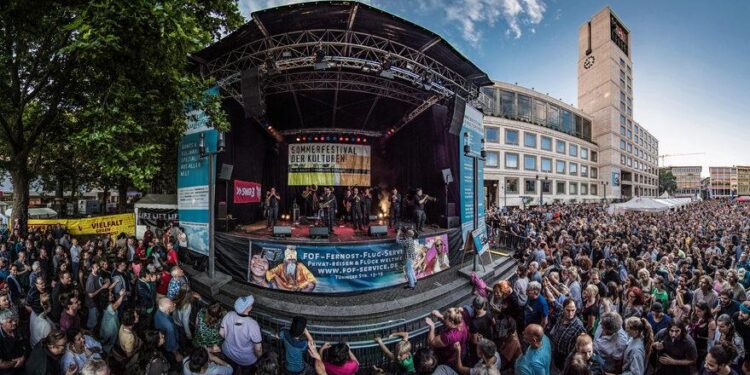Ireland’s efforts to integrate migrant populations are being undermined by a persistent oversight: the neglect of migrants’ religious communities. As the country welcomes increasing numbers of people from diverse cultural and faith backgrounds, experts and community leaders warn that ignoring the pivotal role of religious organizations risks isolating newcomers and hampering social cohesion. This growing concern has been highlighted in recent discussions, emphasizing that inclusive integration policies must actively engage with faith-based groups to foster a truly united Ireland.
Challenges of Overlooking Religious Communities in Ireland’s Integration Policies
Failing to incorporate the diverse religious communities into Ireland’s integration policies has resulted in significant gaps that hinder social cohesion and mutual understanding. Religious identity often serves as a crucial anchor for migrants navigating new cultural landscapes, offering both support networks and a framework for values. When these communities are overlooked, integration programs risk alienating essential segments of the population, fostering isolation rather than inclusion. Key challenges stemming from this oversight include:
- Limited access to culturally sensitive support services that respect religious practices and holidays.
- Misunderstandings or tensions between migrant groups and host communities due to lack of dialogue.
- Reduced trust in public institutions that fail to acknowledge spiritual needs.
These challenges are exacerbated by the complex interplay between religious beliefs and integration expectations, highlighting a need for nuanced policy approaches. The chart below illustrates the correlation between religious inclusion in integration frameworks and migrant satisfaction levels in recent surveys:
| Inclusion of Religious Communities | Migrant Satisfaction (%) | Sense of Belonging (%) |
|---|---|---|
| High Inclusion | 78 | 82 |
| Moderate Inclusion | 56 | 60 |
| Low Inclusion | 35 | 42 |
Addressing these challenges requires policymakers to embed religious community representation in integration strategies actively, ensuring that faith-based organizations are recognized as vital partners in building a more inclusive Ireland.
The Role of Faith-Based Groups in Building Social Cohesion Among Migrants
Faith-based groups serve as vital anchors for many migrants, offering more than just spiritual guidance. They create essential networks that foster trust and mutual support, helping newcomers navigate unfamiliar social landscapes. These communities often provide practical assistance such as language classes, employment advice, and cultural orientation, which accelerates integration and reduces isolation. By embracing migrants’ religious identities, Ireland stands to strengthen social bonds across diverse populations.
Key contributions of faith-based groups include:
- Organizing intercultural dialogues and community events
- Providing psychosocial support in times of crisis
- Facilitating interaction between migrants and local residents
- Advocating for migrant rights and inclusion policies
| Faith Group | Support Activities | Impact on Social Cohesion |
|---|---|---|
| Muslim Associations | Language courses, cultural festivals | Bridges community divides through shared events |
| Christian Churches | Employment support, counseling | Fosters trust and mutual aid networks |
| Hindu Temples | Social gatherings, youth mentorship | Encourages intercultural understanding |
Policy Recommendations for Inclusive Engagement with Migrant Religious Networks
The success of Ireland’s integration strategies hinges on active collaboration with migrant religious networks, which serve as vital support systems for newcomers. Policymakers must prioritize structured dialogues that recognize the religious and cultural dimensions migrants bring, moving beyond superficial consultation. This can be achieved by establishing community liaison roles within local government bodies, tasked with fostering trust and meaningful two-way communication. Additionally, allocating dedicated resources to support faith-based community initiatives ensures that integration is not just a bureaucratic process but a lived experience inclusive of spiritual identity.
Practical steps toward inclusive engagement include:
- Regular interfaith forums to address integration challenges collaboratively
- Cultural competency training for policymakers and frontline workers interacting with migrant populations
- Funding models tailored to support religious organizations in offering social and educational services
- Transparent monitoring systems to evaluate the impact of such partnerships on social cohesion
| Recommendation | Expected Outcome |
|---|---|
| Community Liaison Roles | Enhanced trust and communication |
| Interfaith Forums | Joint problem-solving |
| Cultural Training | Improved service delivery |
| Targeted Funding | Strengthened community support |
| Monitoring Systems | Data-driven adjustments |
Wrapping Up
As Ireland continues to navigate the complexities of integration, recognizing and engaging with the religious communities of migrants emerges as a critical component. The failure to do so not only undermines social cohesion but also hampers the country’s broader commitment to inclusivity. Addressing these challenges head-on will be essential for fostering a truly integrated society that respects and reflects the diversity of all its members.
















